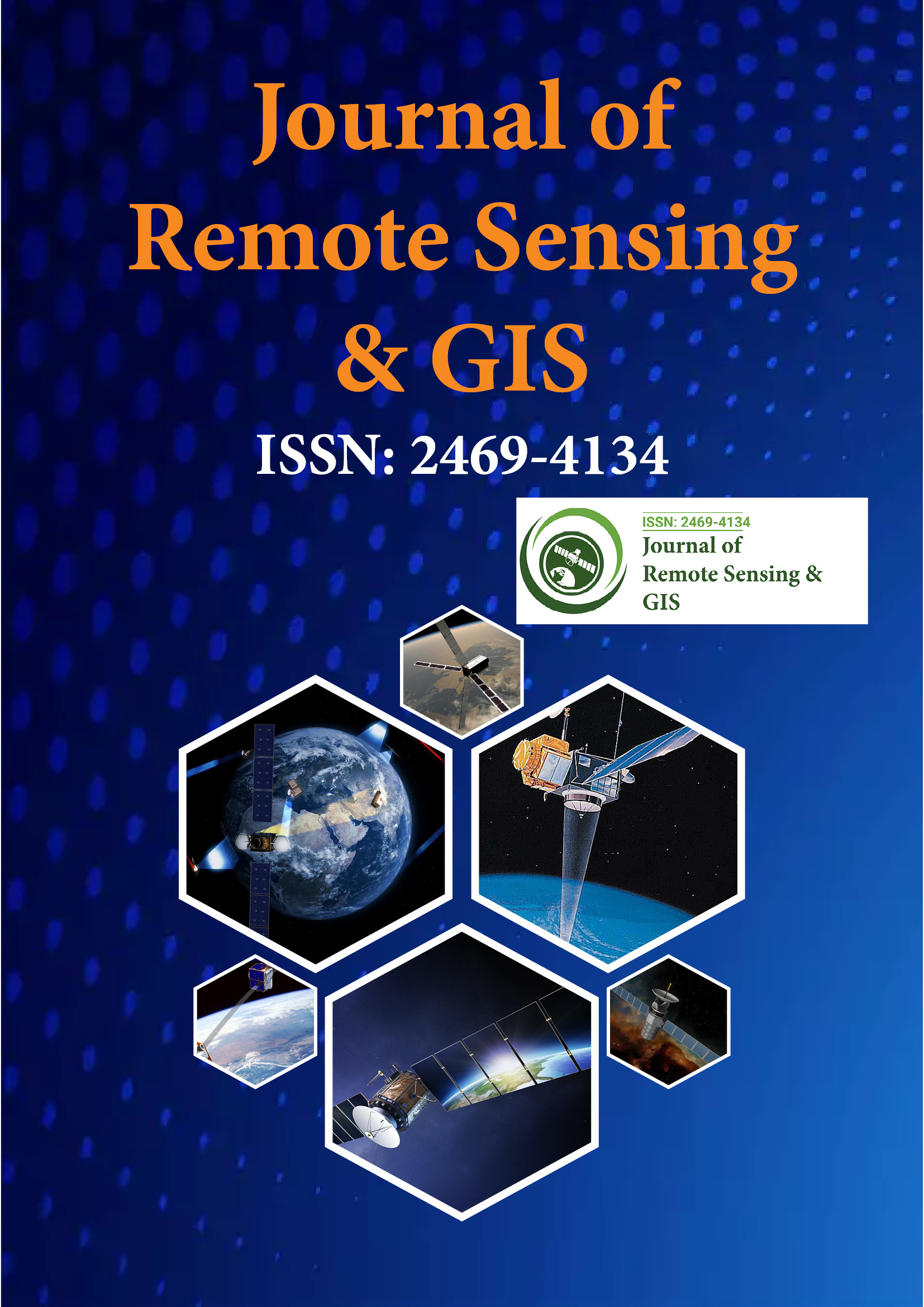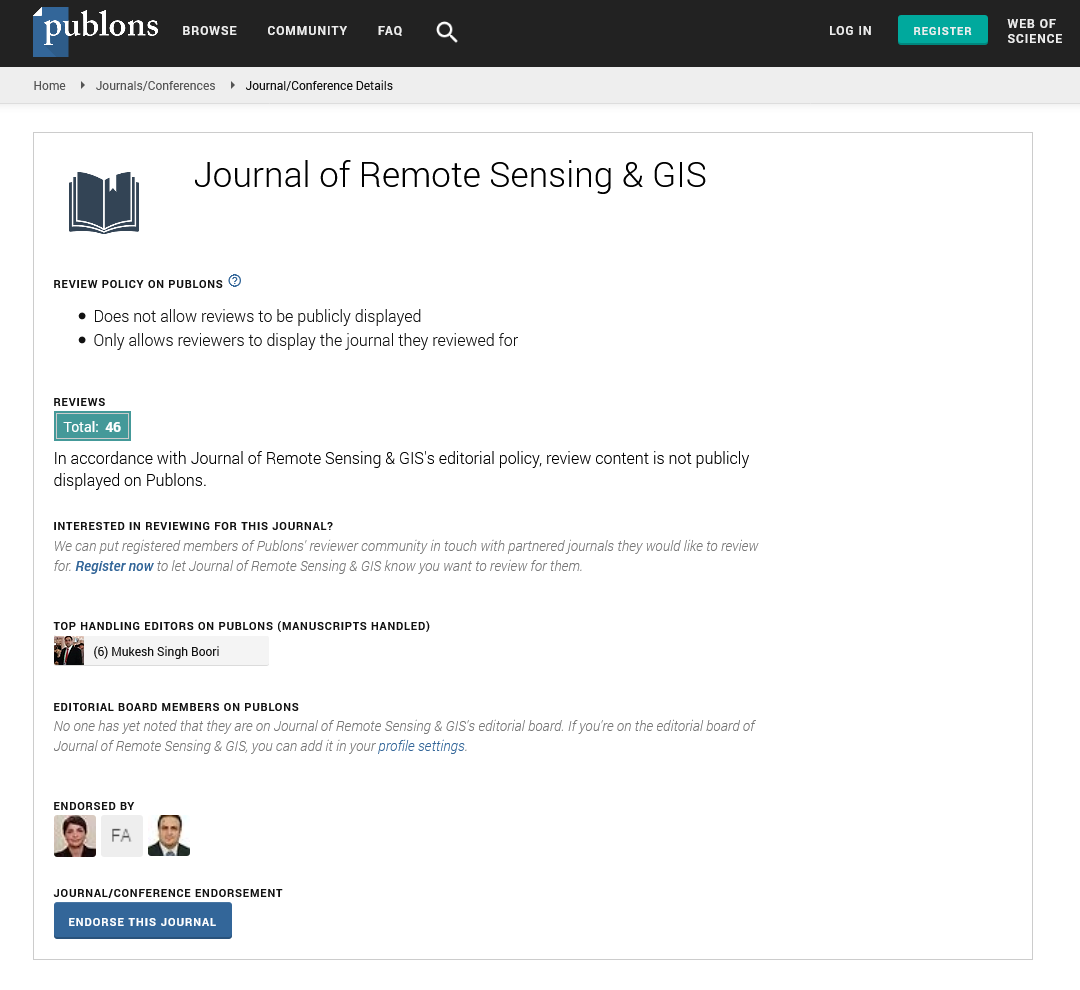Indexed In
- Open J Gate
- RefSeek
- Hamdard University
- EBSCO A-Z
- OCLC- WorldCat
- Publons
- International Scientific Indexing
- Euro Pub
- Google Scholar
Useful Links
Share This Page
Journal Flyer

Open Access Journals
- Agri and Aquaculture
- Biochemistry
- Bioinformatics & Systems Biology
- Business & Management
- Chemistry
- Clinical Sciences
- Engineering
- Food & Nutrition
- General Science
- Genetics & Molecular Biology
- Immunology & Microbiology
- Medical Sciences
- Neuroscience & Psychology
- Nursing & Health Care
- Pharmaceutical Sciences
A broad analysis of vegetation dynamics across Nigeria using standardized principal components from spot satellite data
2nd International Conference on GIS and Remote Sensing
October 02-03, 2017 Vienna, Austria
Sadiq Abdullahi Yelwa
Usmanu Danfodiyo University, Nigeria
Keynote: J Remote Sensing & GIS
Abstract:
One of the vital resources across Nigeria being threatened by a combination of natural and man-made impact is vegetation. Accordingly, the issue of desert encroachment particularly across the northern parts of the country covering Adamawa, Bauchi, Borno, Gombe, Jigawa, Kano, Kastina, Kabobi, Sokoto, Yobe and Zamfara states is a very serious issue of concern. Desertification in Nigeria is caused by land degradation in these states where poor land management and environmental pressure is on the increase. The vegetation cover of Nigeria which reflects past and present climatic variations according to several studies indicated that its current status particularly forest areas, had an annual deforestation rate of 5% per annum of its closed forests. This is one of the highest in the world. Furthermore, rapid population growth and demands for economic development on a relatively natural, and in some areas, undisturbed vegetation which is not properly managed can also lead to permanent conversion of most vegetated areas to other forms of land use such as agriculture and housing in Nigeria. On the other hand, while some states are claiming that, part of their states in the northern part of the country is greening-up, others are claiming that the Sahel is encroaching their individual states. This study presents a broad analysis of vegetation dynamics across Nigeria with a GIS environment using standardized principal components from SPOT satellite data. Results showed that the first component indicates a general pattern of vegetation across the country while successive components show changes of varying degrees that are likely due to climatic or human impacts with both the semi arid areas in the north and Niger delta in the south indicating pockets of these likely impacts on vegetation and general environment. With the repetitive coverage of the global earth from SPOT-VEGETATION satellite this freely available products from such satellite will go a long way in making frequent monitoring across large areas possible. Results will be very useful to policy makers particularly issues dealing with climate change.
Biography :
Sadiq Abdullahi Yelwa has completed his PhD from the Department of Environmental Sciences, University of Stirling, UK. He has been a Lecturer in the Department of Geography Usmanu Danfodiyo University, Sokoto since 1997. He was seconded for two years to start the Department of Environmental Sciences, Federal University Dutse in Jigawa State between 2012 and 2014. He has published more than 30 papers in reputed journals. He has recently been appointed to serve as the Head of Department of the newly established Department of Environmental and Resources Management, Faculty of Engineering at Usmanu Danfodiyo University, Sokoto, Nigeria.

